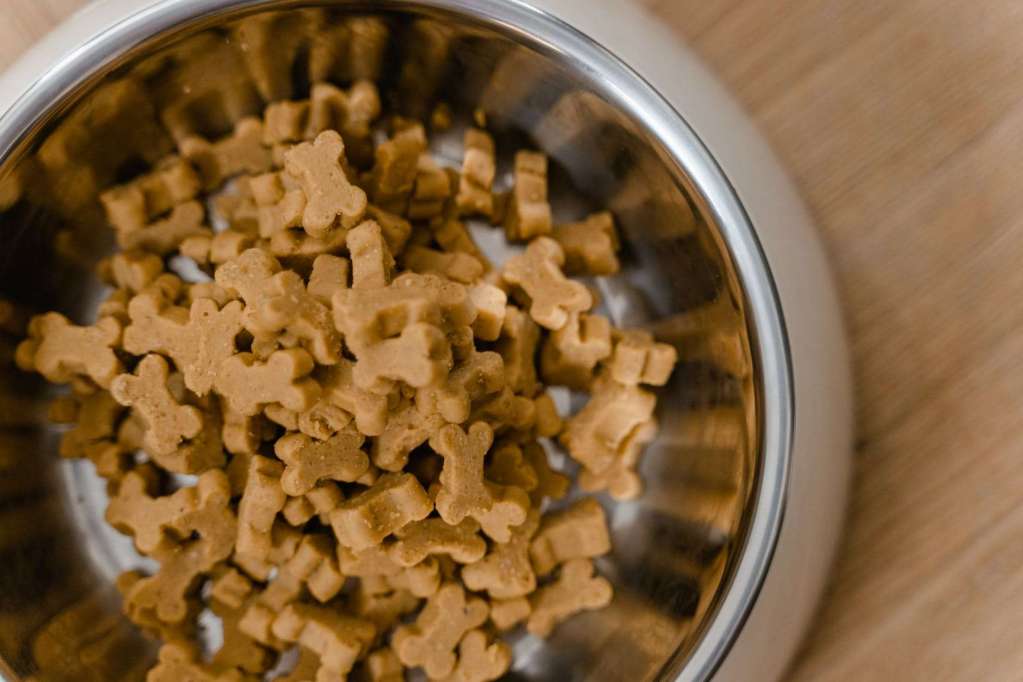Seaweed has gained popularity as a superfood for humans due to its rich nutritional profile. But what about our furry friends? Can dogs safely enjoy this oceanic treat? The answer is yes, dogs can eat seaweed. In fact, seaweed can provide several health benefits for dogs when consumed in moderation. However, there are a few important considerations to keep in mind when feeding seaweed to your canine companion.
Why Seaweed for Dogs?
Before delving into the dos and don’ts of feeding seaweed to dogs, let’s explore why seaweed can be beneficial for our four-legged friends. Seaweed is packed with essential nutrients, including omega-3 fatty acids, vitamins, minerals, and antioxidants. These nutrients play a crucial role in supporting your dog’s overall health and well-being.
Nutritional Benefits of Seaweed
- Omega-3 Fatty Acids: Seaweed is an excellent source of omega-3 fatty acids, which are known for their anti-inflammatory properties. These fatty acids can support your dog’s immune system, improve skin and coat health, and promote joint health.
- Vitamins: Seaweed contains vitamins A, C, E, and K, which are essential for your dog’s immune function, vision, and overall vitality.
- Minerals: Seaweed is rich in minerals like calcium, iron, potassium, and iodine. These minerals contribute to strong bones, healthy blood circulation, and thyroid function.
Types of Seaweed Safe for Dogs
Not all seaweed varieties are safe for dogs to consume. It’s vital to choose the right type of seaweed that is proven safe for canine consumption. The following seaweed strains are considered safe:
- Nori: Nori is a popular type of seaweed commonly used in sushi rolls. This processed seaweed is safe for dogs and can be fed in small quantities as a nutritious treat.
- Kelp: Kelp, also known as bladderwrack, is a type of brown seaweed that dogs can safely consume. It is often used as a supplement due to its high mineral content.
- Wakame: Wakame is another marine vegetable that is safe for dogs. This type of seaweed is typically served in salads or stir-fries and can be given to dogs in small amounts.

Best Practices for Feeding Seaweed to Dogs
While seaweed can be a healthy addition to your dog’s diet, it’s essential to follow these best practices to ensure their safety and well-being:
- Small Quantities: Always introduce seaweed to your dog’s diet gradually and in small quantities. Too much seaweed can cause digestive upset and diarrhea.
- Freshness and Quality: Choose high-quality, organic seaweed products that are free from additives, preservatives, and artificial flavors. Avoid seaweed products that contain added salt, garlic, or onions, as these can be harmful to dogs.
- Watch for Allergies: Just like humans, dogs can have allergies or sensitivities to certain foods. Monitor your dog closely after introducing seaweed to their diet. If you notice any signs of allergic reactions, such as itching, vomiting, or diarrhea, discontinue feeding seaweed and consult your veterinarian.
Potential Risks and Precautions
While seaweed can offer numerous health benefits to dogs, it’s crucial to be aware of potential risks and take necessary precautions:
- Sodium Content: Some seaweed varieties, particularly those used in processed snacks or seasoning, may contain high levels of sodium. Excessive sodium intake can lead to increased thirst, dehydration, and other health issues. Always check the ingredient list and opt for low-sodium seaweed products or feed small amounts of fresh seaweed to your dog.
- Iodine Levels: Certain types of seaweed, such as kelp, can be rich in iodine. While iodine is essential for thyroid health, excessive consumption can result in thyroid imbalances. It’s important to moderate the amount of seaweed you feed your dog, especially if they have thyroid-related conditions or are prone to iodine sensitivities.
- Source and Contamination: Ensure that the seaweed you feed your dog comes from reputable sources. Avoid seaweed that may have been harvested from polluted waters or treated with harmful chemicals. It’s best to opt for seaweed products specifically marketed for canine consumption or consult with your veterinarian regarding suitable seaweed sources.
Safe Ways to Incorporate Seaweed in Your Dog’s Diet
There are various ways to introduce seaweed into your dog’s diet, depending on their preferences and your convenience:
- Seaweed Treats: Many pet stores offer seaweed-based treats specifically formulated for dogs. These treats are often made with safe, canine-friendly seaweed varieties and can be a convenient option for rewarding your dog while providing nutritional benefits.
- Homemade Treats: If you enjoy creating homemade treats for your furry friend, consider incorporating seaweed into the recipe. You can find dog-friendly seaweed treat recipes online and customize them to cater to your dog’s taste preferences.
- Powder or Supplement: Seaweed powders and supplements designed for dogs can be another way to ensure they receive the nutritional benefits of seaweed. These products are often formulated to provide measured amounts of key nutrients found in seaweed. Always follow the recommended dosage guidelines and consult with your veterinarian if you have any concerns.
Remember to always seek guidance from your veterinarian before introducing seaweed or any new food into your dog’s diet, especially if they have existing health conditions or are on a specific dietary regimen.
In Conclusion
Seaweed can be a nutritious and beneficial addition to your dog’s diet when fed in moderation and with caution. It offers a range of essential nutrients that support overall health and well-being. However, it’s important to select safe seaweed varieties and be mindful of potential risks such as sodium and iodine levels. By following best practices and considering individual circumstances, you can provide your canine companion with the potential benefits of seaweed while promoting their overall health.
Frequently Asked Questions (FAQs) about Dogs and Seaweed
1. Can dogs eat dried seaweed?
Yes, dogs can eat dried seaweed, but it should be given in moderation. Dried seaweed can be a healthy and crunchy treat for dogs, but excessive consumption may lead to gastrointestinal issues. Always check the ingredients and ensure that dried seaweed products do not contain additives or seasonings that are harmful to dogs.
2. Is it safe for dogs to eat raw seaweed?
While raw seaweed is not typically toxic to dogs, it can be difficult for them to digest and may cause stomach upset. It is recommended to feed dogs cooked or processed seaweed instead of raw. Cooking or processing helps break down the cell walls of seaweed, making it easier for dogs to digest and absorb its nutrients.
3. Can small dogs eat seaweed?
Yes, small dogs can eat seaweed, but as with any new food, it’s important to start with small portions and monitor their response. Smaller breeds may have a more sensitive stomach, so it’s crucial to introduce seaweed slowly and watch for any adverse reactions. Consulting with your veterinarian before adding seaweed to your small dog’s diet is always a good idea.
4. How often can I give seaweed to my dog?
Seaweed should be given to dogs as an occasional treat or as part of a balanced diet. A small amount once or twice a week is generally safe and can provide the nutritional benefits without overwhelming their system.
5. Can dogs eat seaweed from the beach?
It is not recommended to allow your dog to eat seaweed directly from the beach. Seaweed found on the beach can be contaminated with bacteria, parasites, or toxins that may be harmful to dogs. Additionally, some types of seaweed washed ashore may be decomposed and not suitable for consumption. Stick to commercially available seaweed products that are safe for canine consumption.
Remember, while seaweed can provide numerous health benefits for dogs, it should never replace a balanced and complete diet formulated specifically for their nutritional needs. If you have any concerns or questions about feeding seaweed to your dog, consult with your veterinarian for personalized advice.





